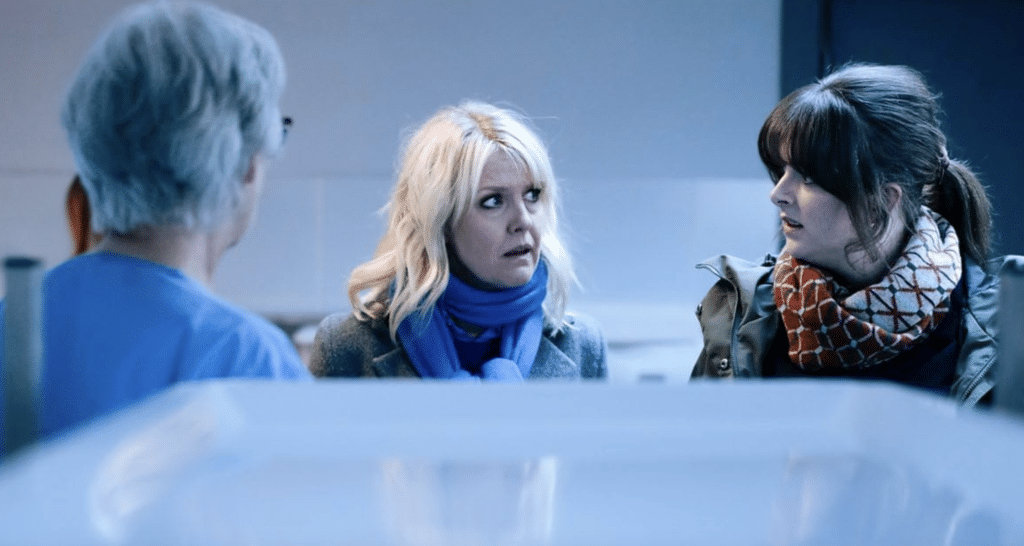A Manchester man accused of murdering a young woman in 1996 has once again protested his innocence after Netflix brought the crime back into the spotlight with their latest true-crime series.
Across three episodes, Sophie: A Murder in West Cork delves into the unsolved murder of French national, Sophie Toscan Du Plantier, a thirty-nine year old film maker and mother of one.
Two days before Christmas in 1996, Sophie’s body was found outside of her holiday home in West Cork, Ireland, a place she would regularly escape to from her busy life back in France.
Sophie’s body bore clear signs of assault, with over fifty injuries primarily to the head – however, because a murder hadn’t occurred in the area for decades, the police had little to no experience with this type of investigation, so the body was left outside until the pathologist arrived the next day.

Netflix UK & Ireland
Given the time that elapsed before his arrival, it was almost impossible to pinpoint a time of death, and other forensic evidence may have been lost due to this delay.
The police looked into a handful of suspects for Sophie’s murder, including her husband, Daniel Toscan du Plantier, and former lover, Bruno Carbonnet. But eventually, police tried to pin the crime on one man – Ian Bailey, a journalist from Manchester who had moved to Ireland to work as a reporter. Eerily, he had actually covered Sophie’s murder.
The police brought Bailey in for questioning when they noticed suspicious scratch marks on his hands – Bailey later insisted that they had happened when he climbed a tree to cut it down for Christmas. However, the evidence continued to stack up against Bailey, such as the level of detail about the murder and Sophie’s injuries used in his articles.
Friends also revealed that Bailey had made a confession about going ‘too far’ to them, while another witness had come forward to say they had seen Bailey in the vicinity of du Plantier’s holiday home on the night of her murder.

Netflix UK & Ireland
Bailey was also known for previous incidents of domestic violence towards his partner – a psychiatrist’s report prepared for the murder trial concluded he had a ‘personality constructed on narcissism, psycho-rigidity, violence, impulsiveness, egocentricity, with an intolerance to frustration and a great need for recognition.’
On February 10th, 1997, Bailey was arrested, as was his partner, but both were released without charges. And then, in January 1998, Bailey – alone this time – was again arrested before being released without charges.
The issue was the evidence – or the lack of it. Bailey explained away his ‘confessions’ as dark humour or his reiterating what was being said about him. There had also been no indication of forced entry at Sophie’s home, indicating that she had willingly opened her door. And, most prominently, no forensic evidence was found to tie him to the murder.
And, to this very day, Bailey maintains his innocence – just last month, he confirmed that a fresh investigation into Sophie’s murder had been authorised by Gardaí (the Irish police) after the emergence of what he described as ‘new information.’

Netflix UK & Ireland
He wrote on Twitter: “For those who have not heard a comprehensive cold case of the murder file an investigation has been authorised by Commissioner Harris as a result of me writing to him and the emergence of new information… I pray the truth, the whole truth and nothing but the truth emerges.”
And, on the topic of Netflix’s investigation into the matter, Bailey had merely said that he suspected the documentary series about the murder will be ‘a piece of propaganda’ and ‘a piece of demonisation.’
Bailey does appear briefly in the documentary, but only gave Netflix ‘limited access.’
Sophie: A Murder In West Cork is available to stream on Netflix now.




































